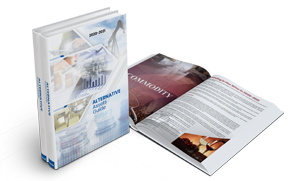
Never miss an important update |
Click to get notified about important updates only. |

99 Alternatives
Opportunities are Infinite
In any organization, expenses can be made on conferences/ meetings, commercial units for rent, computer/equipment purchases, paying staff/guests, sponsorship/ advertisements.
Paying dues, memberships, machine depreciation/asset class risk, factory lease, employee purchases/ wards/ prizes, fundraising, prepaid expense, and work environment.
Companies recognize expense, not at the time when they pay a wage or produce it, but when they earn through it.
They can write off tax-deductible from their returns to lower the taxable income and liabilities.
The income statement can be recorded in a single or multi-step format. In the case of a multi-step format, the revenues are often presented in greater detail, which may include the cost of goods that can be subtracted to show higher profits.
Such entries can be recorded in the business books as per the cash accounting or accrual method.
The accrual accounting method records it when a legal obligation is created.
It can be when the goods are shipped or received or the service is conducted. In contrast, the cash accounting method is delayed and is performed when the actual payment is made, like paying the monthly electricity or broadband bills.
Firms use tax laws to determine the type of expense which can be claimed as a deduction to determine the income tax payable.
The job of an accountant or a consultant is to deduct the business expense to remove the unclaimed ones before lodging the returns report.
Accounting involves finding a clear distinction between operating and non–operating expenses -
Operating means administrative, office supplies, employee wages, commodities and inflation, commission, marketing, rent, and other costs and non-operating involve the expenditure on relocating or the investment wherever the firm is paying indirectly, like in the case of paying interest on loans or fees to advocate and others at the time of pursuing a lawsuit related to bankruptcy.
The income statement mentions all these, and the cost of goods sold is deducted from the firm's revenue to profits.
From gross profit, operating expense is deducted to get the operating income. Similarly, one can add/deduct (or add) the other sources of revenues and other entries.
Sometimes, a company faces unusual everyday expenditures, which can mask a great performance. However, properly analysing all such entries in the income statement can help managers assess the actual performance.
Real estate remains one of the most time-tested...
From liquifying your asset to any time you want to have...
Impact investing in real estate is a growing trend with...
Whether buying your first home or selling your...
What is better Silver or Sterling Silver? We all know...
How much do Twitch Streamers Make? Man is fun-loving...
Copyright © 2025 99alternatives Ltd. All rights reserved.
Designed and Managed by Mont Digital


